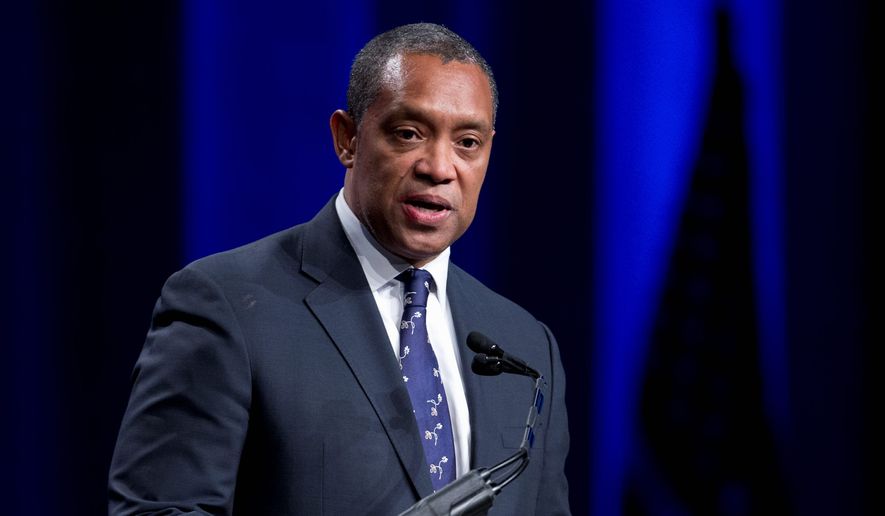Electricity customers in the District would fare better without the proposed merger between utility companies Pepco and Exelon than they would with it, according to the D.C. Office of the Attorney General.
In filings submitted to the D.C. Public Service Commission on the final day public comments on the merger were accepted, the Attorney General’s Office outlined the city government’s arguments against the $6.8 billion deal, noting negative effects to the District’s economy and a lack of substantial benefits for consumers.
D.C. government lawyers urged the commission to reject the deal unless a list of 40 conditions were met — among them ring-fencing protections, a requirement to keep Pepco headquartered in the District and funding of sustainable development and energy efficiency programs.
Regulators in the District, where activists have been outspoken in their opposition to the deal, will be the last to decide on the merger following approvals of the deal by officials in Maryland, Delaware, Virginia and New Jersey.
Local representatives, residents and elected officials were among those filing last-minute comments with the D.C. Public Service Commission before Wednesday’s deadline. In recent weeks, activists opposed to the deal have called on D.C. Mayor Muriel Bowser to speak out against it. But at the end of the day, the mayor declined to weigh in.
A spokesman for Ms. Bowser previously said her legal team, led by chief counsel Mark Tuohey, was reviewing the matter.
SEE ALSO: D.C. reporter shot dead on street
“As the last jurisdiction to review the merger, the Bowser administration is committed to negotiating a resolution that best serves the interests of District residents and ratepayers,” said spokesman Mike Czin in early May.
He declined to address questions on the mayor’s reasoning for not submitting public comment, calling the attorney general’s filings the “counsel of record on the matter.”
Six D.C. Council members have submitted comments in opposition to the merger, including newly elected Ward 4 representative Brandon Todd, a protege of Ms. Bowser.
The merger would combine Chicago-based Exelon and its three electric and gas utilities (Baltimore Gas and Electric Co., Commonwealth Edison Co. and PECO Energy Co.) with D.C.-based Pepco Holdings’ utilities — Delmarva Power and Light Co., Atlantic City Electric Co. and Potomac Electric Power Co.
Opposition to the deal in the District has sparked environmental and renewable energy concerns and prompted questions over Exelon’s proposal to acquire Pepco for $2.5 billion more than the net book value of the company’s assets, including whether it would lead to future rate increases.
Environmentalists have decried Exelon’s reliance on power generation via its nuclear power plants as its business model. Pepco was divested from electricity generation more than a decade ago, and now profits from serving as an energy supplier rather than generator. The District’s Office of the People’s Counsel cautioned that, in the long run, customers would likely see higher rates with the deal than without it.
SEE ALSO: Judge’s ruling allows concealed-carry for D.C. gun owners, shoots down police objections
Exelon has defended the deal, saying it will result in better service and reliability for D.C. customers and include a one-time $50 credit per customer.
The attorney general’s analysis concludes that under the deal, D.C. customers will not see any significant increase in electricity reliability “that Pepco was not well on its way to attaining on a pre-merger, standalone basis.”
The attorney general’s opinion alone can’t block the merger — Maryland Attorney General Brian Frosh also opposed the deal — but comments submitted by public officials will be taken into consideration by members of the Public Service Commission, along with expert testimony as they rule on the matter.
The Maryland PSC imposed 46 conditions on Exelon as part of the merger — including a one-time credit of $100 per customer, requirements to develop solar energy in the state, and higher reliability standards. Exelon agreed to the conditions on May 18, with Exelon President and CEO Chris Crane saying the requirements were both constructive and challenging.
“It poses some stringent conditions that will be difficult to fulfill, but all of us at Exelon accept the challenge and commit to proving ourselves in an expanded role in Maryland,” Mr. Crane said.
The conditions put forth by the D.C. Attorney General’s Office cover similar ground as some of the conditions laid out by the Maryland PSC — including the right to order Exelon to divest its interest in Pepco under numerous scenarios, including if the company filed for bankruptcy or if there were a major nuclear accident at one of its nuclear power facilities.
The District’s conditions also include payment by Exelon of more than $165 million for sustainable development and clean energy funds on top of rate credits for customers. Without the conditions, the attorney general recommended denial of the merger.
“In effect, this merger will be forever,” wrote lawyers with the Office of the Attorney General in their filing. “It could have been good for the District of Columbia; Joint Applicants could have offered conditions to make it so. But it is not and they did not.”
• Andrea Noble can be reached at anoble@washingtontimes.com.




Please read our comment policy before commenting.